Ed Cuozzo on Grief, Growth, and Finding His Voice with Cold and University Drive
- Natasha Maxwell

- Aug 24, 2025
- 8 min read
From unexpected loss to unexpected opportunity, the singer-songwriter opens up about channeling pain into purpose, connecting through music, and why authenticity remains the most important.
Images: Cold performance at Havoc Fest, Lansing, Michigan, Nat Maxwell [2024].
In this candid conversation, we catch up with University Drive frontman and Cold guitarist Ed Cuozzo following a tour celebrating Cold’s impactful records: 13 Ways To Bleed On Stage and A Different Kind of Pain. Ed reflects on his evolution in the band, lessons from frontman Scooter Ward, and the personal experiences shaping his artistry. The interview explores grief, healing, and connection through music, from the loss of his mother to creating Clear, an album of collective mourning. We discuss life on tour, authentic storytelling, and balancing with small things like late-night shows or winding down with Severance. This discussion is about survival, empathy, and learning to carry loss while staying open to the future.
Q1: We briefly planned this interview before Cold's tour began in April. With the anniversaries of 13 Ways To Bleed On Stage and A Different Kind of Pain, how did this run differ from the past tours that University Drive has joined?
Answer: Well, the first tour that I came on as the guitar player, along with Angelo, was really high-pressure and last-minute. We only had about three weeks to prepare for that tour. So, you know, that took a minute to get comfortable, just with this whole new world that had arrived for the two of us. And then the following tour, while more relaxed, I still feel like, you know, we were kind of figuring things out with equipment, learning songs, & finding our place in the music. But this one, I mean, I might just be speaking personally, but it feels like the easiest of the bunch out of all of the Cold tours that I've been a part of, as far as playing as a member of Cold. The crowds are great. You can just see how stoked and excited everybody is. And we're just super grateful that we get to be there, and get to bring this music to the fans who have grown up with this music and been waiting to hear these records in full. I personally also just really love A Different Kind of Pain. That's my favorite Cold record. So to get to play that every night has been just a fucking blast.
Q2: Cold has essentially adopted University Drive over the last few years; you’ve been playing for both bands on multiple tours and festivals. Considering Cold's lyrical authenticity, what might be some of Scooter’s influences on your style and themes when writing for University Drive?
Answer: Oh, that's a good question. I mean, I've always just kind of leaned into the idea of being authentic with music and artistry in some sense. So that’s been in the University Drive playbook long before Cold had “adopted us”, But that being said, you know, having Scooter as a close friend and truly a mentor of mine at this point, there's no way his influence as far as authenticity, can't slip even more into what I've been trying to do. You know, it's very easy to watch somebody like him and how he could communicate to a crowd so graciously and with so much reality and not see that and think like, “yeah, that's exactly what I want to do.” and also, A Different Kind of Pain has been a giant influence on me personally. Introducing the topics of adversity and triumph.
Q3: Considering the thematic elements of grief and loss within this interview mini-series, how have you channeled your experiences into your art and the legacy you're building?
Answer: So, a couple of years back, my mother passed away unexpectedly. And it just, you know, it was a complete fucking bombshell when it happened. Before then, I'd never really experienced any sort of unexpected, deep loss of an extremely close loved one. And my mother, you know, she was basically…she was basically my best friend. So, yeah, when she passed away, that's when I wrote the University Drive album Clear. And that whole album, all it did was deal with themes of loss and grief. The whole thing kind of haunted me, really. The entire making of that record was just internal questions piercing my brain, not to sound overly dramatic, but just like thorns in my mind of, uh, you know…what happens when we die? Does her spirit still survive? Why does the world continue to move forward? And how dare the world continue to move forward when my whole world had come to a grinding halt… I just had a lot of hopelessness, anger, and questions. Yeah. So, in my way of dealing with all that, I made “Clear”. One of the defining features of that record was the voices interwoven throughout the songs. I basically reached out to the public through social media, and I said, “Hey, I'm doing this album. If anybody is interested in being a part of it, I have a couple of questions I want to ask you, and if you then would just send back voice memos of your answers, it would be really helpful.” The questions were something like: What do you think happens when we die? Do you believe in love? Do you believe in an afterlife? Do you believe in God? I ended up getting like 40 or 50 submissions of people leaving, you know, these crazy, heartfelt stories about loss that they had dealt with. And some of them were just three minutes of them talking out their thoughts on death and loss. Some of them were short poems. Some of them were 30-minute in-depth stories about what had happened to them. And it really, really affected me in a big way. One, just knowing that I wasn't alone, was huge. And I know that should be obvious, but when you're, you know, when you're in deep, when something like that happens, you really can't see the forest through the trees. So that was extremely healing just to know I wasn't alone, but what was really difficult when making that record was I spent, maybe three or four months, I think, just going through all of these audio recordings and stitching them into the songs, interweaving them into the songs, trying to find the right placements that felt natural and reflected the music and the lyrics in the right way. They almost became more of the focal point of the record as opposed to the actual music or lyrics. So yeah, that whole process changed everything. That record's the reason that we ended up on the road with Cold. It’s the reason that Angelo and I ended up in the band with Cold, um, that record was kind of the catalyst for everything. Regardless, grief is just super hard to navigate. They're difficult themes to run away from because the older you get, the more and more you watch people in your life go through those sorts of things, or, you know, you go through more of those sorts of situations. But we try to figure out how to grapple with the weight of loss and grief every day. I don't think it's something that ever really goes away. And I know that's a cliche, but you just learn how to manage it. You learn how to carry it better, you know, and having friends and loved ones and music, art, some form of expression is, I mean, if I didn't have music….if I didn't have music, I don't know... I doubt I would still be here.
Q4 What's the most profound advice you'd give someone struggling with life challenges?
Answer: I don't know if I'm the best one to give anyone advice…But I mean, if we're talking specifically about grief, my advice would be to just surround yourself with as much love as you can and to be as loving in your daily life as you can. I do believe that we get back what we give to this world to some extent. And not in some woo woo way, but in a, you know, it's just the natural order of things. I think when we suffer, sometimes, suffering can show up in a really strange way. It could come out as aggression or maliciousness, or as being cold or isolated. But I've come to find that when I've approached my own pain and others' pain with love, I receive that love back in greater bursts. And you know, if you're struggling with the loss of a loved one, you have to lean on the people in your circle. And if you don't have people in your immediate circle, you have to reach out to others for help. I think it’s really helpful to envelop yourself in some form of artistry, even if it's just a hobbyist way of doing it, which is nothing wrong with doing. I mean, I'm a hobbyist with music who has gotten lucky with tours. Anything expressive, I think, is the best medicine for dealing with these things. I think a lot of times we get told (or at least I used to get told this) when I was first dealing with the passing of my mother, that distractions were good. It was good to stay busy. Those sorts of things. But you can only stay busy for so long. And, even if you're working or doing something to try to take your attention away from this awful feeling that you're dealing with, it doesn't disappear, and it pops up as you're doing those things. I've had many times where I was working and everything was fine, and, you know, in two hours I'm crying in a corner. So I think distracting yourself is a waste of time. I think approaching your pain and enveloping yourself and allowing yourself to feel those things, but then positively expressing them, whether that be journaling, stream of consciousness writing, poetry, visual art, painting, even if you don't know how to paint, making music, writing songs, singing, working out…to boil it all down in something short and sweet: focusing your efforts on something thats really expressive. Approaching everything with love and not running away from those feelings. Leaning on the people closest to you for their support. And if you don't have people in your circle reaching out for help, I think that’s the way you have to deal with it. That's the way I would tell someone else to deal with it.
Q5: Beyond the music, what's something you're genuinely excited about right now, whether it's a hobby, a show you're watching, or anything else?
Answer: I don't really have any other hobbies besides music….Well, actually…that's not entirely true…My wife and I just recently got into Severance. That show is pretty fucking insane. So I've been stoked on that, but we finished both seasons and…yeah, now maybe another show will come into our lives for us to binge-watch. I know it’s music-related, but University Drive has a new EP, I think I'm most stoked about that. I know you said “beyond music”, but that's the thing that truly has all my excitement at the moment, unless they like rush release, Severance season three.
Q6: After performances, when the bands are winding down, what's one thing you do on tour to settle in and/or recharge?
Answer: I really don’t have any specific routine for winding down. Our days don’t really end until the gear is loaded and the trailer door is closed. But when I finally get to the bus, I usually just try to find something to eat, cut jokes for a while with everyone, and then just go to bed.
Q7: What do you want readers to get most from this interview conversation?
Answer: I would hope the takeaway would be to try to be kinder to yourself sometimes. I think it’s really easy to go down a dark road in our minds of how things could/should be... But I think it’s important (especially pertaining to grief) to really allow yourself some grace.




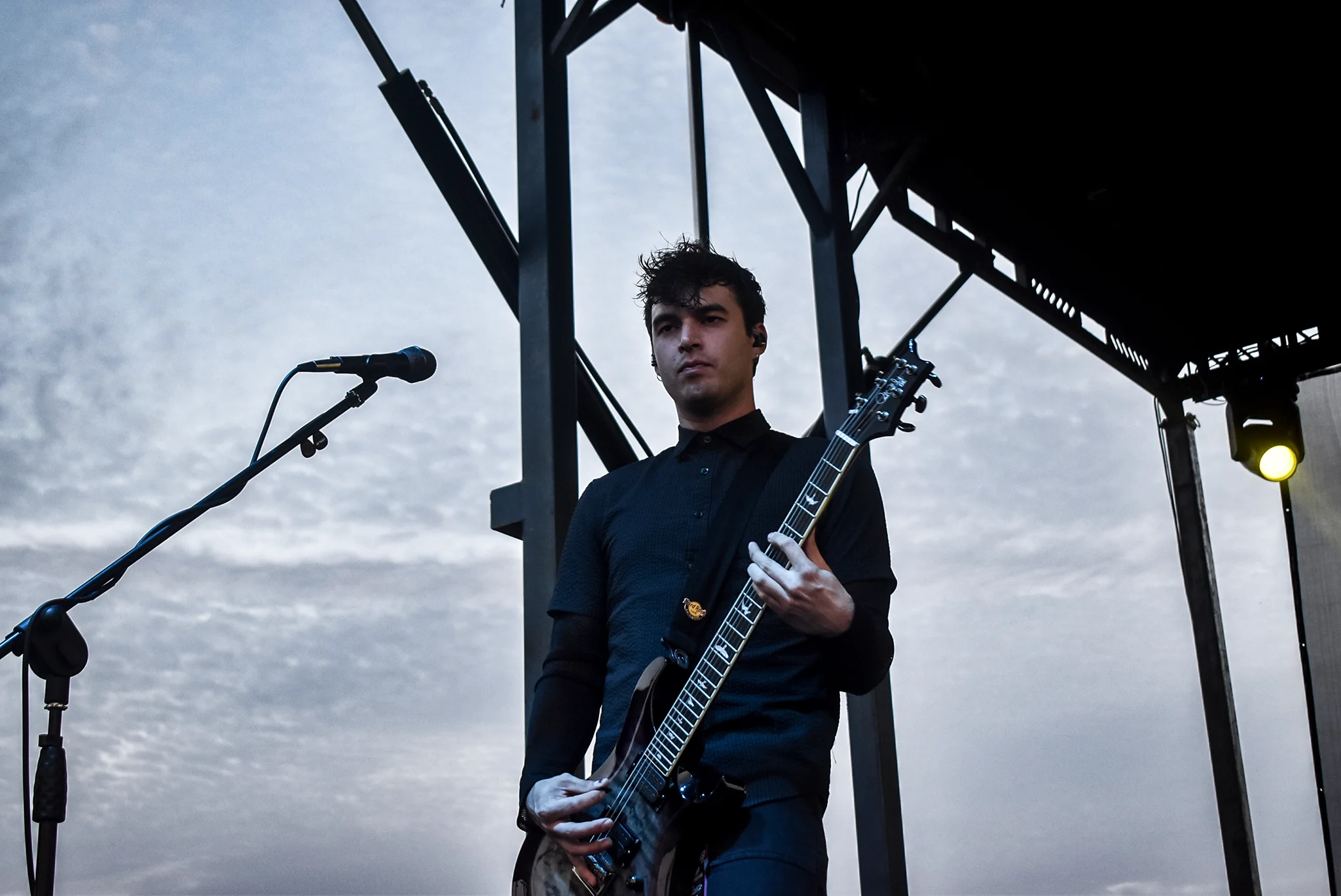
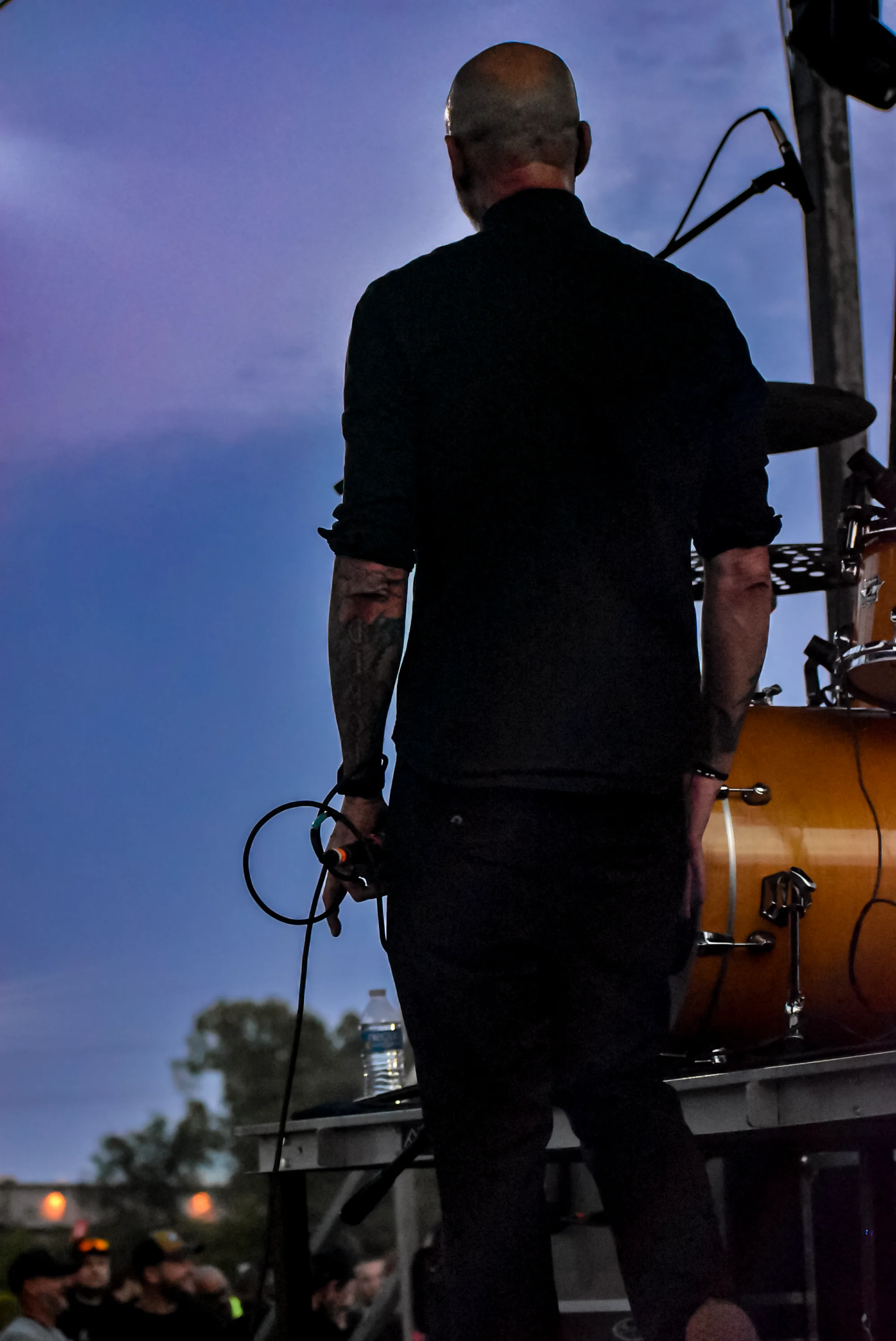
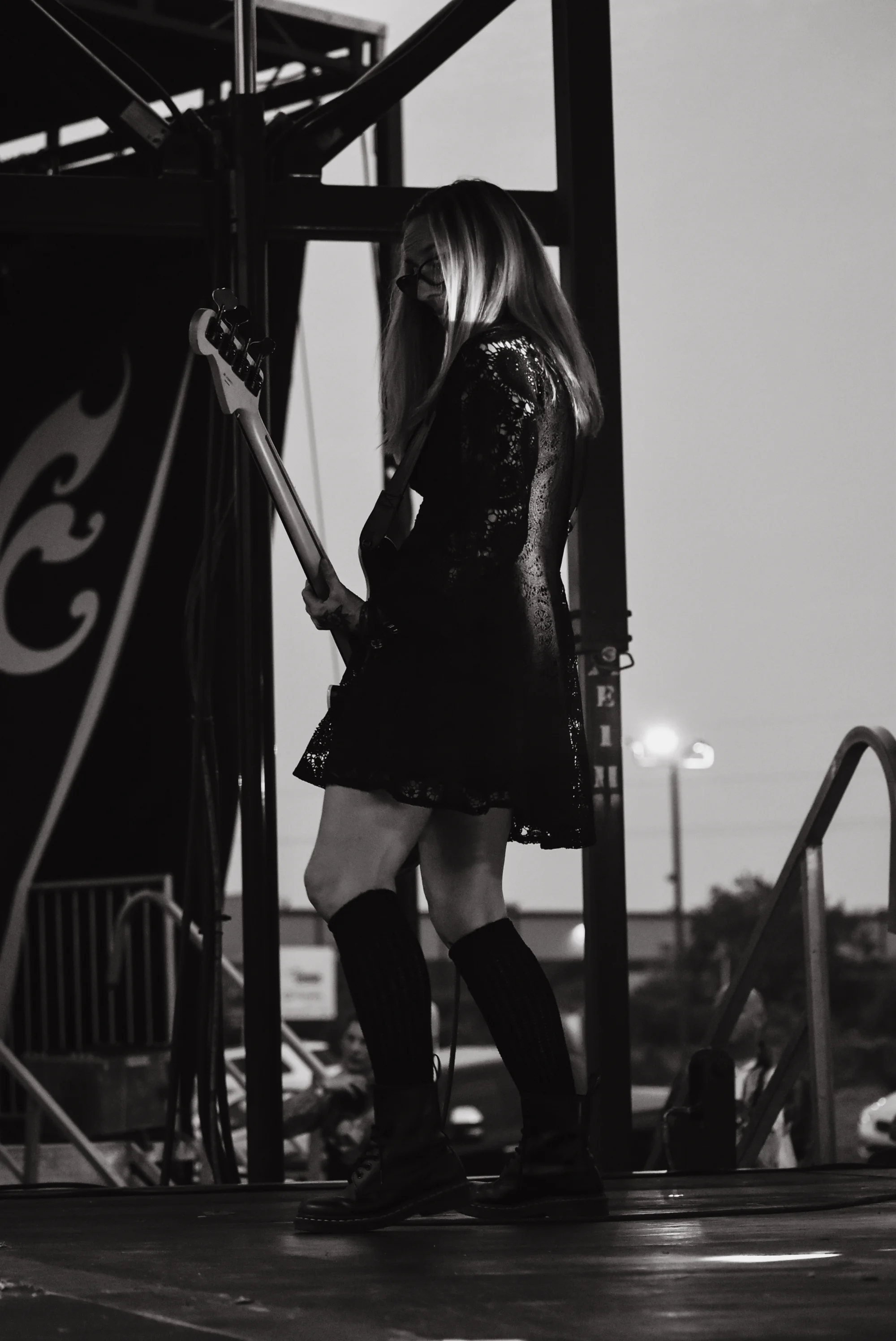
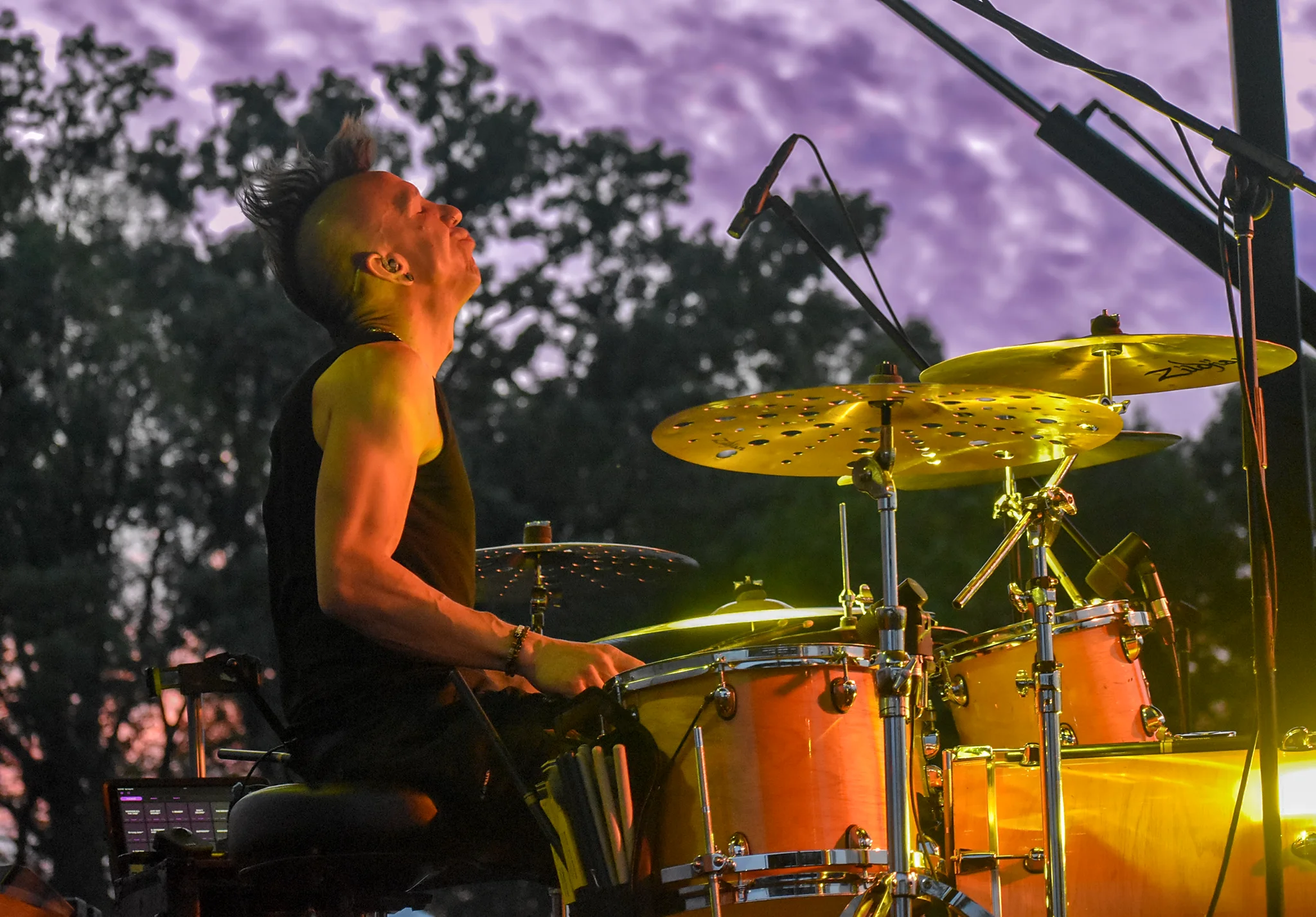
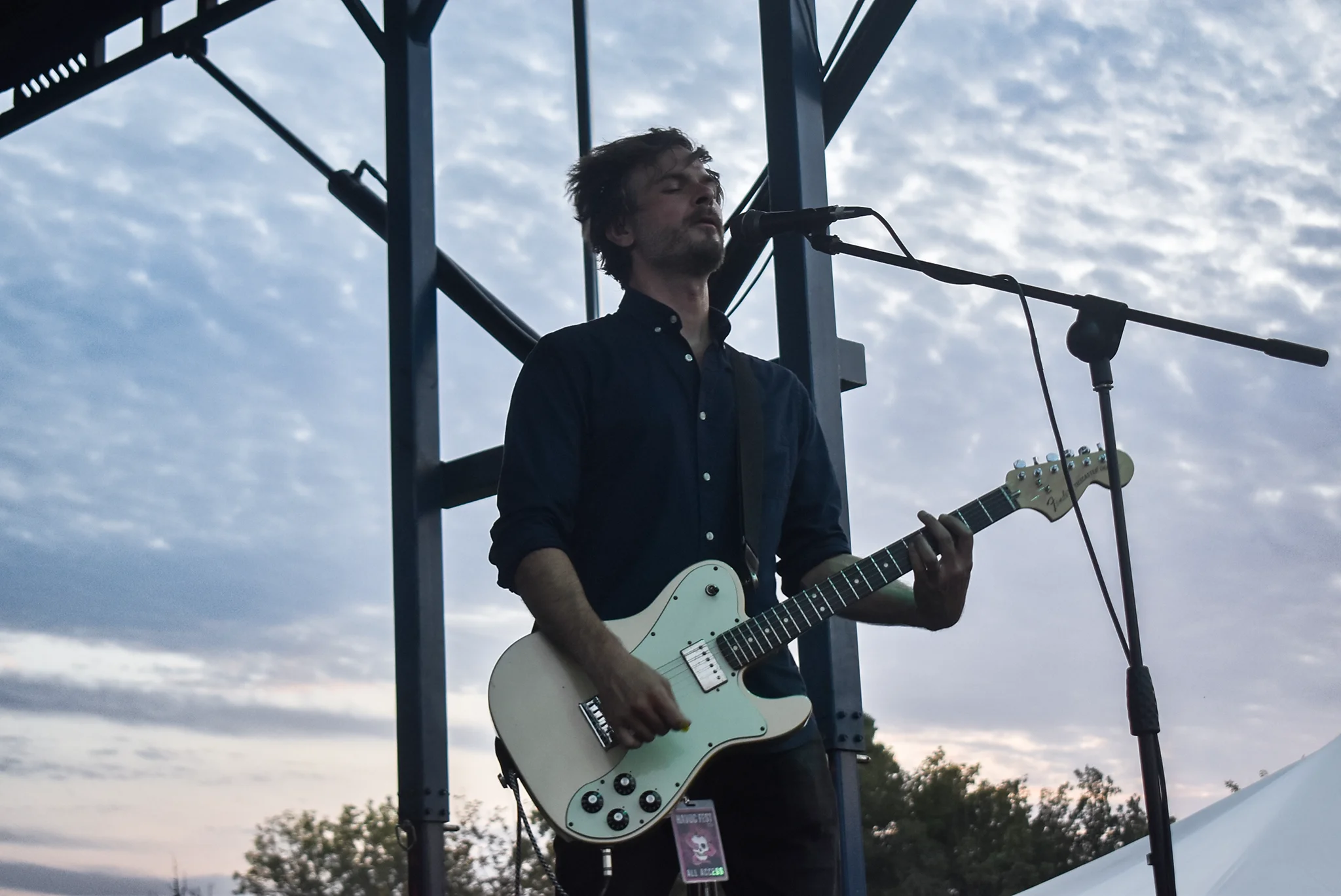



Comments